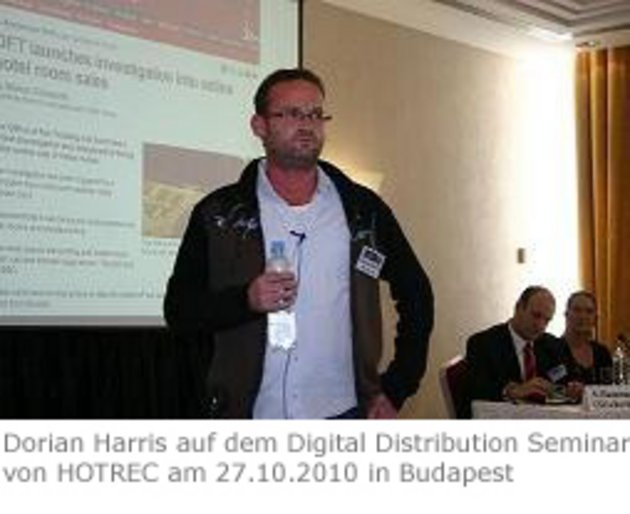
Hotelbuchungsportale spielen eine immer dominierende Rolle für die Distribution und sie weisen nicht nur in Deutschland eine Tendenz hin zu einem engen Oligopol auf. Aus gutem Grund habe ich daher an dieser Stelle im April auch ad hoc das Jahr der Direktbuchung mit einigem Widerhall ausgerufen, um die Maßstäbe zurechtzurücken, Entwicklungstendenzen aufzuzeigen und aufzurütteln.
In Großbritannien wird derzeit dieselbe Diskussion aus einem besonderen Blickwinkel mit großer Intensität geführt. Der Hoteldiskounter Skoosh hat die seitens der marktführenden Online-Portale auch im Vereinigten Königreich von den Hotelpartnern geforderte Ratenparität ins Visier genommen und bei der britischen Kartellbehörde Anzeige wegen wettbewerbsbeschränkender Praktiken erhoben. Die BBC hat das Thema in einem wirklich sehenswerten Beitrag aufbereitet. Das Office of Fair Trading hat zwischenzeitlich eine förmliche Untersuchung eingeleitet.
Zum Digital Distribution Seminar von HOTREC am 27. Oktober 2010 in Budapest habe ich daher aus aktuellem Anlass Dorian Harris, Gründer und Vorstand von Skoosh, eingeladen, um mit ihm über die Auswirkungen der verpflichtenden Ratenparität auf Hotellerie, Mittler und Gäste zu diskutieren.
Seine Einschätzung hat Dorian Harris im Nachgang der Veranstaltung auf Travel Industry Wire publiziert:
Price Fixing Comes Under the Radar at HOTREC
European hotel associations meet amid fears that aggressive contracting by Online Travel Agents is leading to price fixing and unfair competition
In a meeting last week in Budapest, HOTREC announced that rate parity would be one of the items to be closely monitored in the next months, due to its possible disrupting effects on the market and fair competition.
HOTREC, the trade association of hotels, restaurants and cafes in the European Union, devoted a day of talks to unravelling the long list of additional terms and conditions added to contracts by O.T.A.s in recent years.
Speakers at the event spoke of their general concerns that the contracts demanded by O.T.A.s are reducing the sovereignty of individual hotels and reducing their distribution channels in favour of a limited number of dominant websites. The chairman of the Seminar on Digital Distribution, Markus Luthe from the German Hotel Association, noted that the 'number of relevant online travel agents is rather sinking and the market shows tendencies of a narrow oligopoly’.
Speaking at the conference, Dorian Harris, founder of discount hotel site Skoosh explained the various market and legal implications of rate parity to the delegates. He cautioned hotels into reviewing the contracts that they were signing with O.T.A.s stating "agreements which effect the pricing and distribution are watched carefully by competition bureaus because they are often believed to distort the market and harm the consumer".
In September 2010 the Office of Fair Trading in London announced that they were launching a formal investigation into suspected breaches of competition law and had written to a number of parties in the hotel online booking sector.
The OFT added: “The investigators will focus on allegations that there could be agreements or concerted practices relating to the fixed or minimum resale prices of hotel rooms booked online.”
Die Ratenparität ist auch aus meiner Sicht in der Tat alles andere eine paritätische Wohltat. Wird sie von marktstarken Vertriebsportalen über das Klein- oder Großgedruckte im Vertrag einer atomistisch strukturierten Branche kleiner und mittlerer Unternehmen auferlegt, liegen wettbewerbsbeschränkende Auswirkungen auf der Hand. Eine Verpflichtung zur Ratenparität schadet dem Wettbewerb und damit dem Hotelmarkt. Es muss in der unternehmerischen Entscheidung eines jeden Hoteliers verbleiben, ob er eine Ratenparität über seine (digitalen) Distributionskanäle gewähren möchte oder eben nicht.
Sei der erste der kommentiert
Kommentar hinzufügen